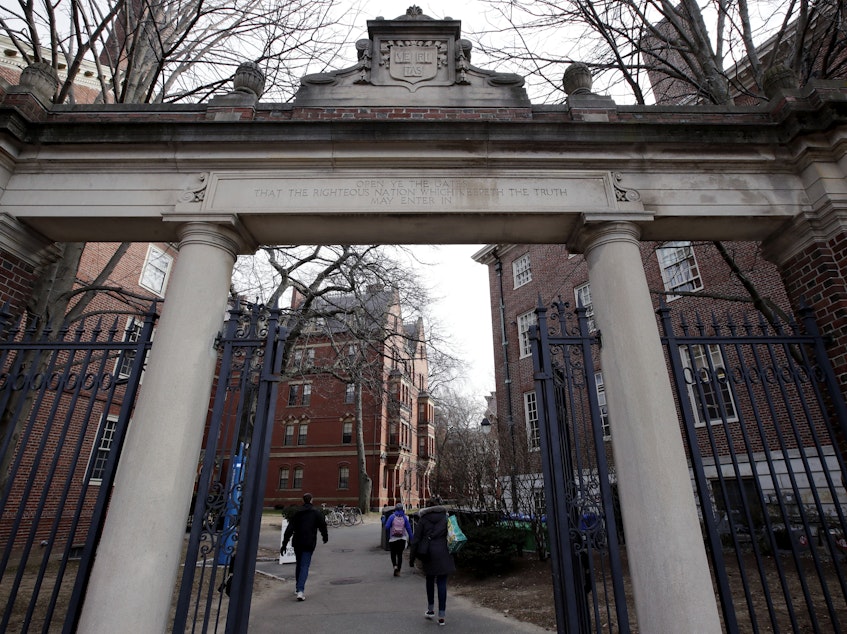Supreme Court adds affirmative action to its potential hit list

The Supreme Court agreed Monday to revisit the question of affirmative action in higher education, deciding to hear a case challenging Harvard and the University of North Carolina's use of race in college admissions.
With the court already having heard arguments this term on abortion and guns, the affirmative action case marks yet another politically charged issue that threatens to uproot decades of legal doctrine. Arguments in the pair of cases will likely be heard in the court's new term, which begins in October.
Updated January 24, 2022 at 11:10 AM ET
The court will consider more than just the details of how Harvard and UNC operate their affirmative action programs. It will also re-examine 43 years of precedent, by asking whether race can ever play a role in admissions.
Both cases were filed on the same day, back in 2014, by the conservative activist group Students for Fair Admissions. The suits claimed that Harvard and UNC impermissibly used race in their admissions process and discriminated against Asian Americans.
Sponsored
Starting in 1978, the Supreme Court has upheld the constitutionality of affirmative action programs three times. In each of these cases, the court's controlling opinion was authored by a traditionally conservative justice. But three of the justices who voted against affirmative action in 2016—Chief Justice John Roberts, and Justices Clarence Thomas, and Samuel Alito—are still on the court, and they now have been joined by three Trump-appointed conservatives.
When it comes to affirmative action, Harvard's program has long been a model cited by the court in dealing with programs at other schools.
Now that Harvard must defend its own policies, the school says it treats every applicant as an individual and only looks at race as one piece in a holistic puzzle. But some Asian American students who were denied admission countered that Harvard's defense amounts to subterfuge. They alleged that Harvard effectively used racial quotas and discriminated against Asian-Americans.
The district court, however, found scant evidence to support those claims, and in November 2020 an appeals court agreed. In their appeal to the Supreme Court, the students are asking the justices to erase affirmative action altogether.
Last fall, Students for Fair Admissions was handed another loss by a federal judge that found UNC's consideration of race as a factor in its wholistic admissions process to be permissible. Skipping the court of appeals, Students for Fair Admissions sought relief directly from the Supreme Court. The court agreed Friday to consider the case as a companion to the Harvard case.
Sponsored
The main difference between the cases is that UNC is a state school and, as such, subject to constitutional constraints that Harvard is not. Still, Harvard must comply with federal civil rights laws, which prohibit discrimination on the basis of race. By accepting both cases, the court can consider whether that public vs. private distinction matters for affirmative action.
The man behind this suit and others like it is Edward Blum—a conservative legal movement unto himself. The former financial adviser and one-time congressional candidate has been the driving force behind cases opposing affirmative action for years. He has helped organize over two dozen similar suits, including the 2016 Supreme Court case that unsuccessfully challenged the University of Texas's affirmative action policy.
Blum also spearheaded attacks against the Voting Rights Act, culminating in the court's 2013 decision in Shelby County v. Holder, which gutted the key provision in the landmark law.
After the court rejected Blum's attack against Texas's policy in 2016, he retooled his strategy, this time taking aim at Harvard. He argued that high-achieving Asian American students were being denied admission because of race. Though he initially struggled to get Asian American students to join his suit—he filed the lawsuit before actually finding any—his organization Students for Fair Admissions now says it has over 20,000 members. [Copyright 2022 NPR]



